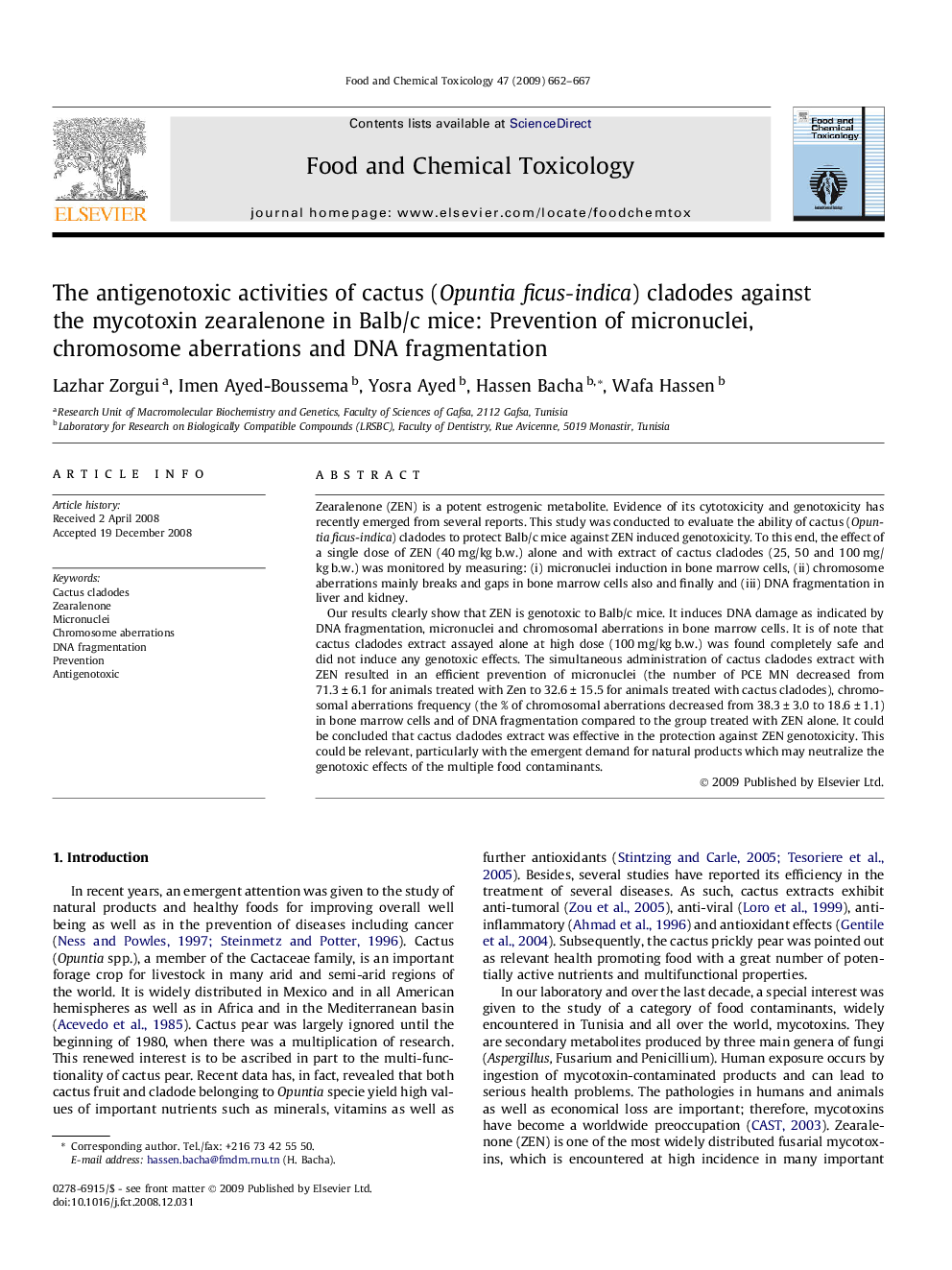| Article ID | Journal | Published Year | Pages | File Type |
|---|---|---|---|---|
| 2586548 | Food and Chemical Toxicology | 2009 | 6 Pages |
Zearalenone (ZEN) is a potent estrogenic metabolite. Evidence of its cytotoxicity and genotoxicity has recently emerged from several reports. This study was conducted to evaluate the ability of cactus (Opuntia ficus-indica) cladodes to protect Balb/c mice against ZEN induced genotoxicity. To this end, the effect of a single dose of ZEN (40 mg/kg b.w.) alone and with extract of cactus cladodes (25, 50 and 100 mg/kg b.w.) was monitored by measuring: (i) micronuclei induction in bone marrow cells, (ii) chromosome aberrations mainly breaks and gaps in bone marrow cells also and finally and (iii) DNA fragmentation in liver and kidney.Our results clearly show that ZEN is genotoxic to Balb/c mice. It induces DNA damage as indicated by DNA fragmentation, micronuclei and chromosomal aberrations in bone marrow cells. It is of note that cactus cladodes extract assayed alone at high dose (100 mg/kg b.w.) was found completely safe and did not induce any genotoxic effects. The simultaneous administration of cactus cladodes extract with ZEN resulted in an efficient prevention of micronuclei (the number of PCE MN decreased from 71.3 ± 6.1 for animals treated with Zen to 32.6 ± 15.5 for animals treated with cactus cladodes), chromosomal aberrations frequency (the % of chromosomal aberrations decreased from 38.3 ± 3.0 to 18.6 ± 1.1) in bone marrow cells and of DNA fragmentation compared to the group treated with ZEN alone. It could be concluded that cactus cladodes extract was effective in the protection against ZEN genotoxicity. This could be relevant, particularly with the emergent demand for natural products which may neutralize the genotoxic effects of the multiple food contaminants.
